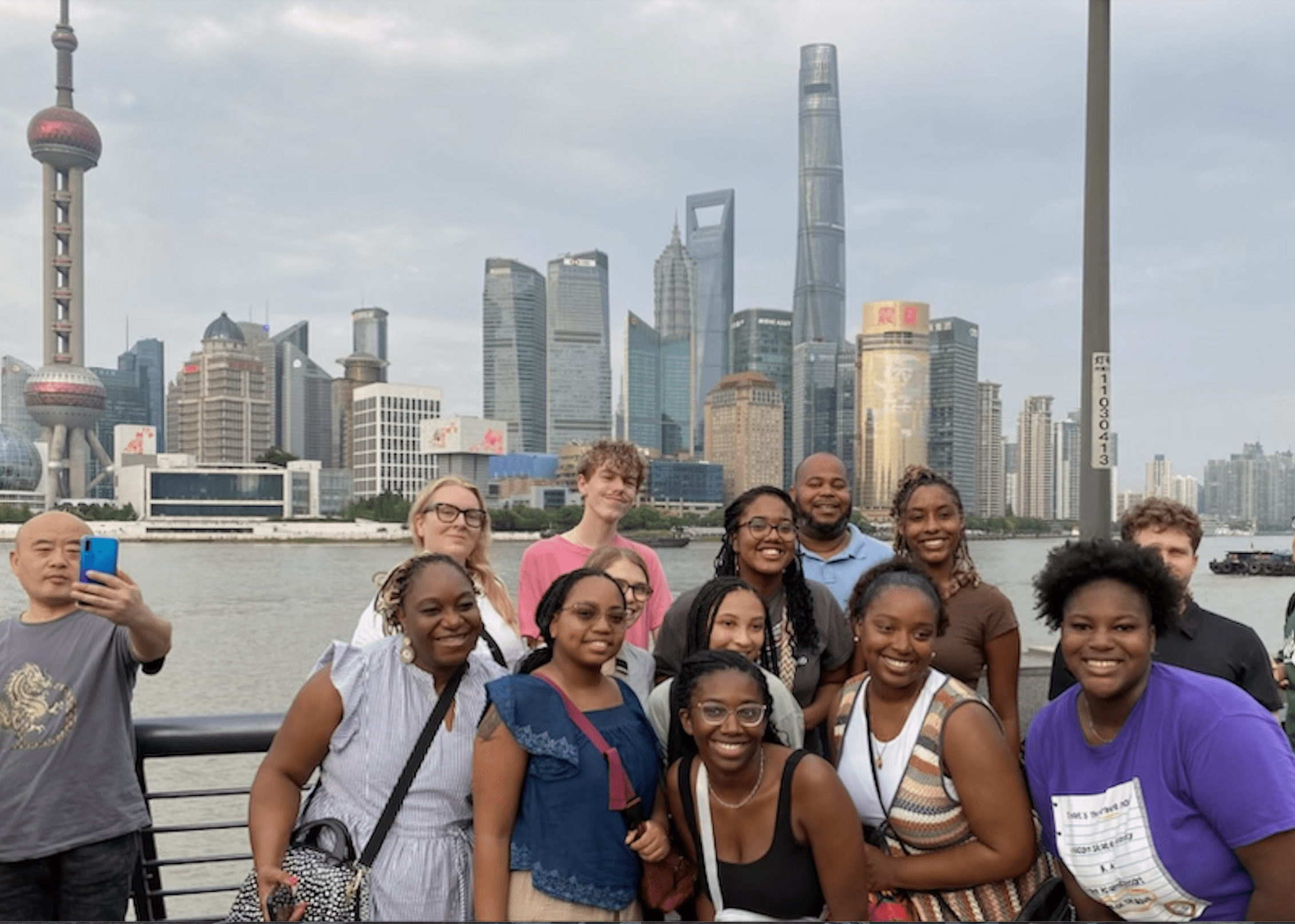Agriculture Education Delegation to China
June 1 - June 17, 2024
USHCA’s historic Agriculture Education Delegation to China included student delegates representing eight 1890 land-grant universities as well as eight faculty members, the President of Kentucky State University, and Dean of agriculture at Tuskegee University. Over 17 days, they traveled to 7 different cities in China and visited 5 educational institutions in China. This immersive learning experience in China included meetings with agriculture education institutions, site visits, and cultural excursions. Alongside their Chinese counterparts, delegates explored rural revitalization efforts, climate smart ag, innovative farming techniques, and valuable best practice sharing that will enhance their own agricultural programs and help to address global food security.
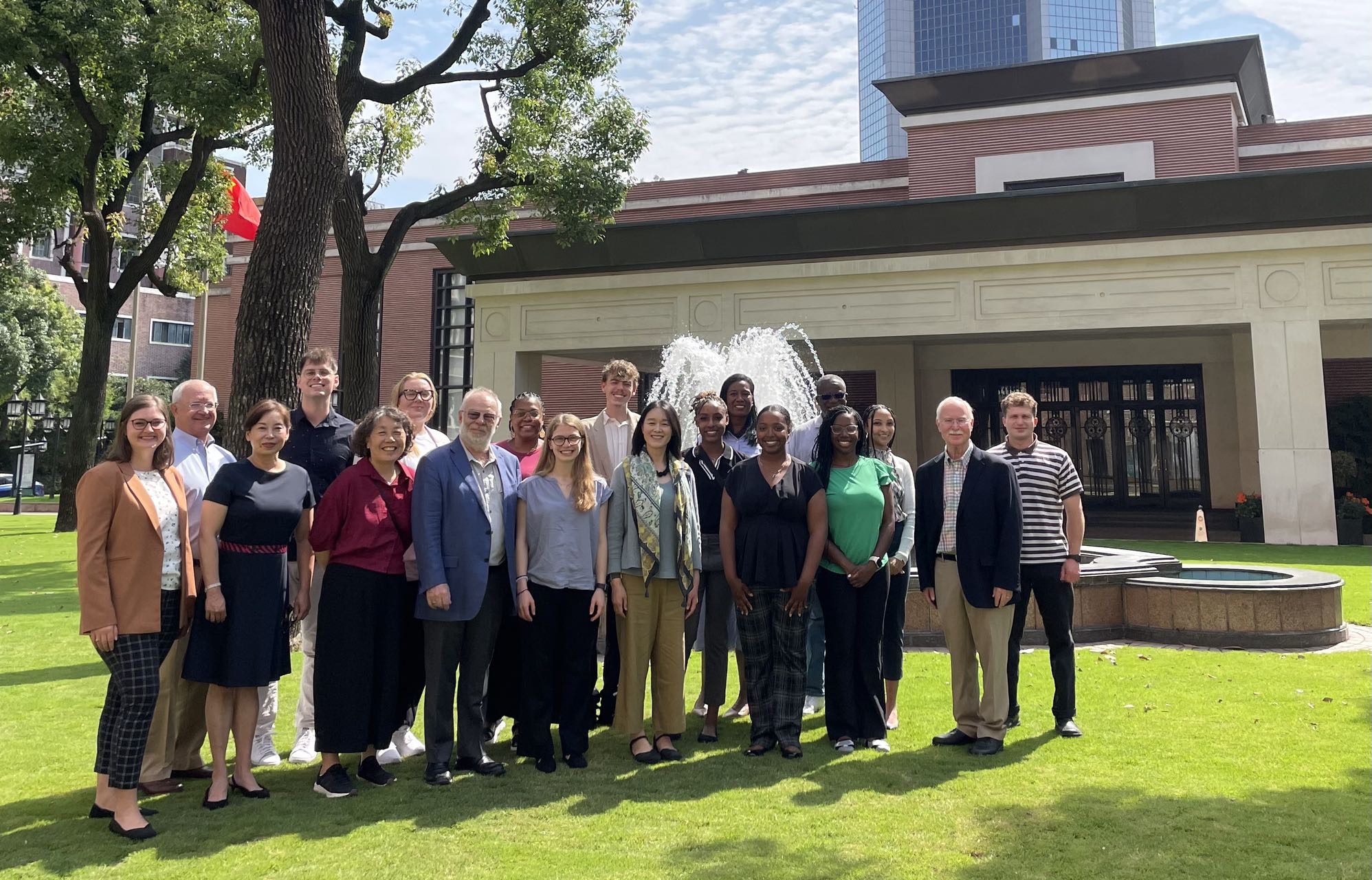
The Ag Education Delegation began in Shanghai on June 1st. On their first full day in China, the student delegates ventured to explore the local community, eager to better understand Chinese culture. As a group, students visited the famous Jing’an temple, their first cultural excursion of the trip.
After a day spent acclimating, delegates were ready to meet with the U.S. Consulate General Shanghai and its senior staff on June 3rd. By meeting with U.S. consulate leadership, the group gained new insights into U.S.-China trade and cooperation on global issues such as climate change and public health. This also served as a career opportunity for the students who learned about job openings at relevant federal organizations that would benefit from their agricultural backgrounds and ag specializations.
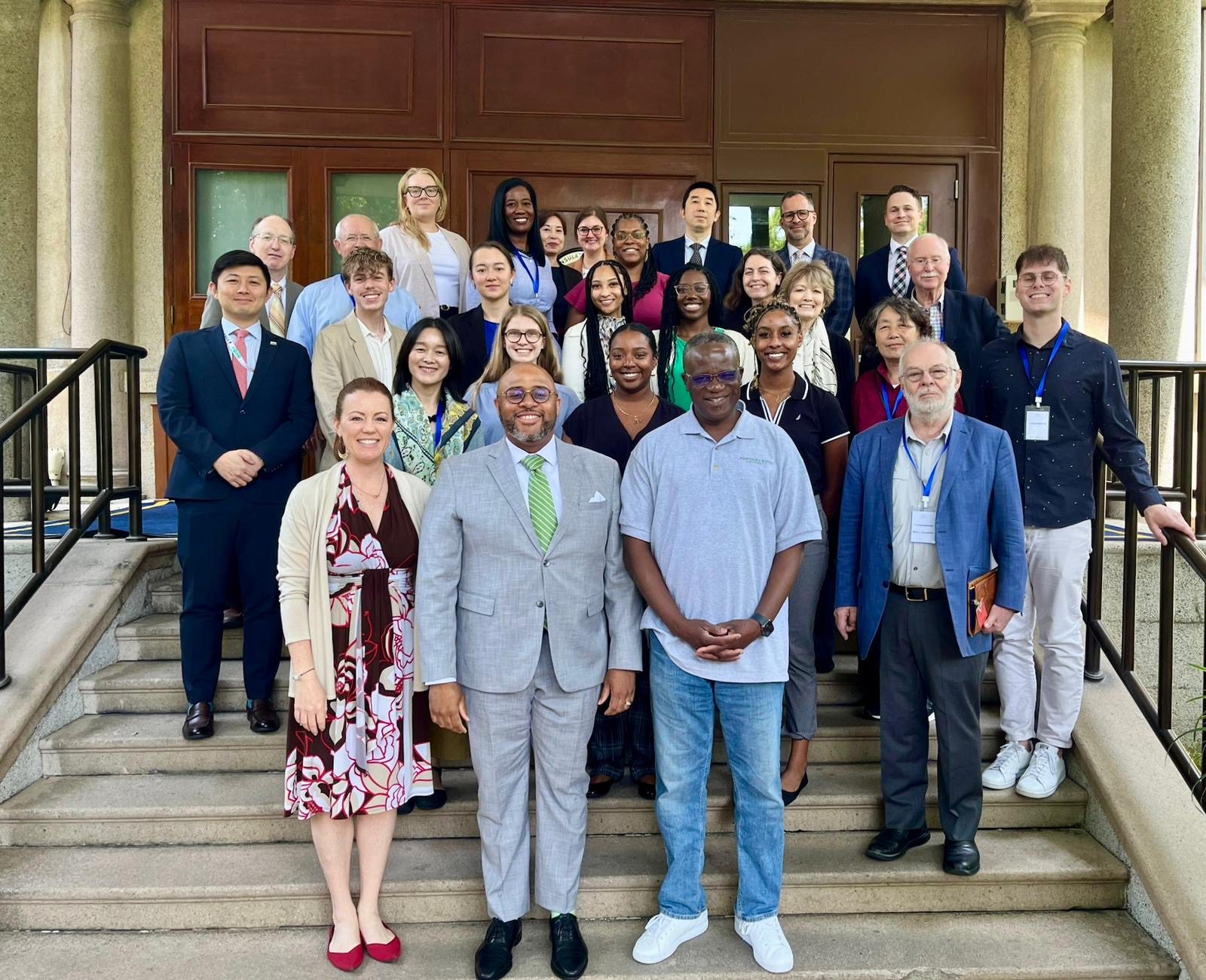
That afternoon, the agricultural education group traveled outside the city to the U.S. Soybean Export Council’s IPRS Feeding Demo Site, learning about sustainable aquaculture in China. This was a chance for the students to see U.S.-China ag collaboration in action: USSEC China have been working with Chinese farm owners to create a more environmentally friendly future by providing them with optimized feeding solutions and free advanced technological support. Students were enthusiastic about the visit, one saying:
“I was amazed to learn about the different components that go into creating and maintaining an aquaculture farm…It was fascinating to see how every part of this system helped another part to be a successful operation. The aquaculture farm was shown to have zero impact on the environment. This process showed the benefits of sustainability through resource efficiency, increased food production, environmental benefits, and water quality improvement. Aquaculture can be a useful tool in meeting global food demand while minimizing environmental impacts.”
- Dacia Ringo of Tennessee State University
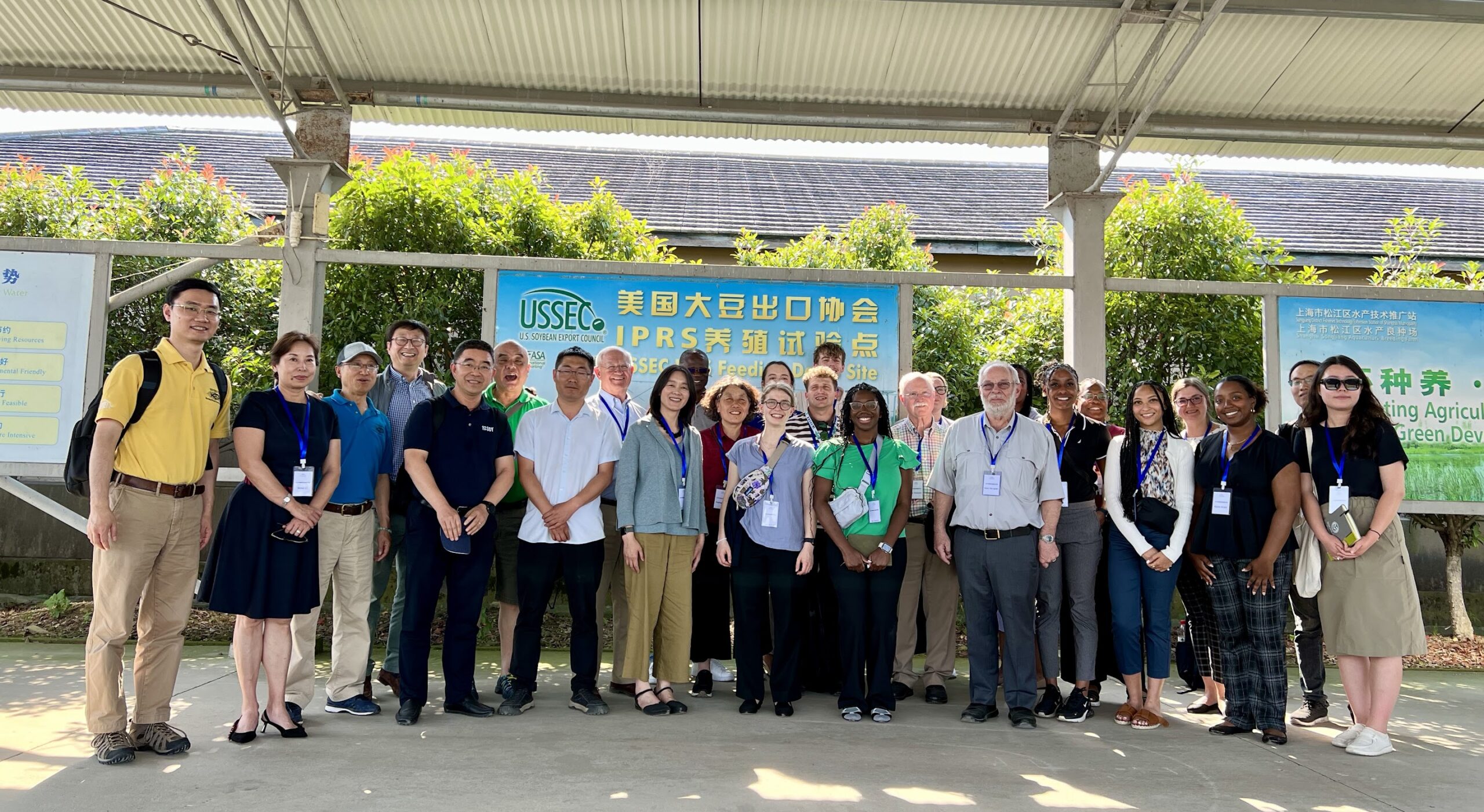
On June 4th, delegates departed from the highly-modernized city of Shanghai to the less developed city of Hefei, in order to learn more about Chinese rural revitalization efforts being undertaken by Anhui Agricultural University (AAU). On campus, faculty delegates discussed opportunities for education exchange and faculty members signed an MOU between Kentucky State University and AAU, while student delegates conversed with Chinese ag students about differences in both nations’ ag education systems.
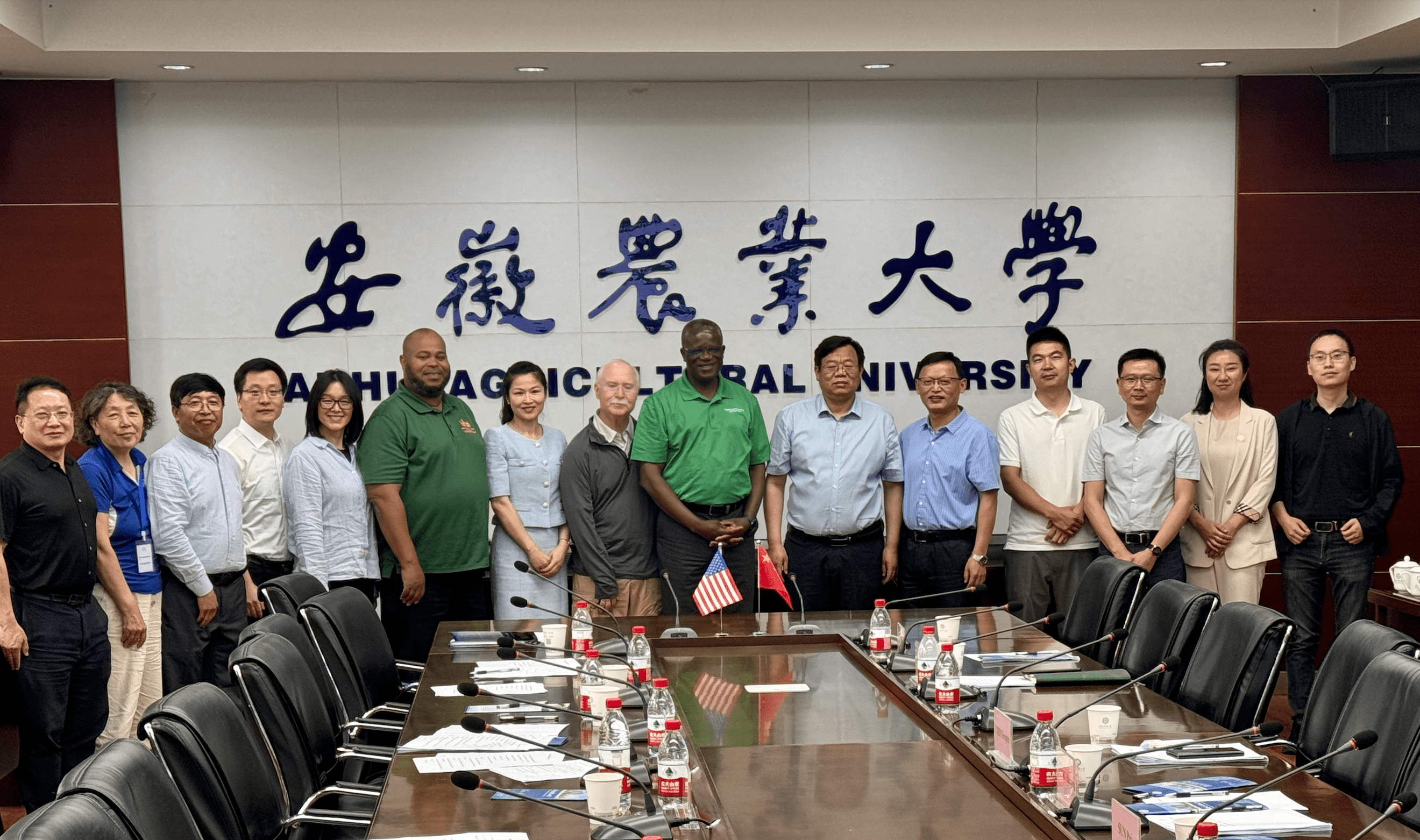
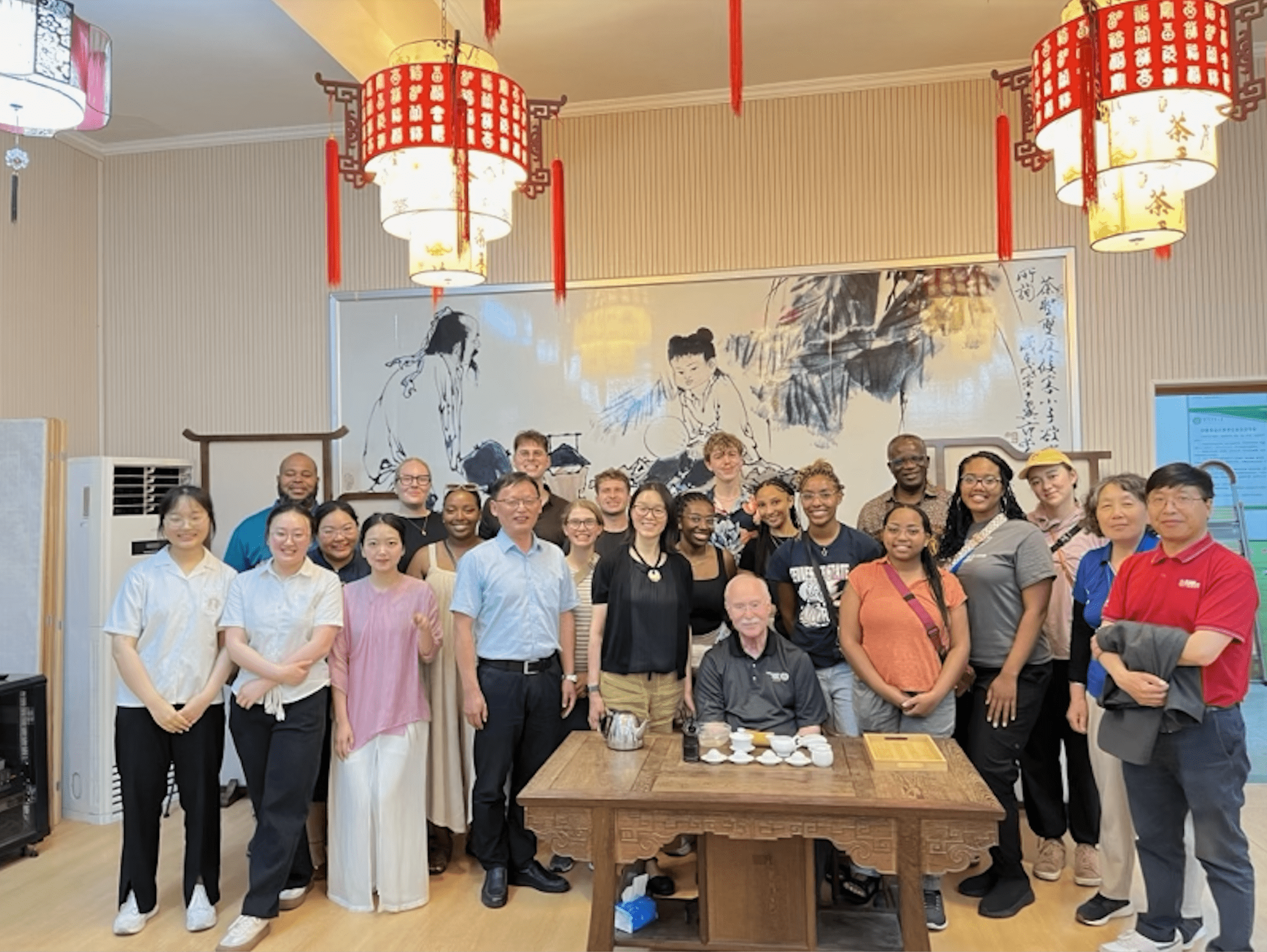
Delegates then toured AAU’s Jianghuai Watershed Comprehensive Experimental Station, a type of extension program unique to said university. Touring the grounds, they met with local farmers and discussed the experimental practices students and staff were researching. This experimental station is jointly established by AAU and Dingyuan county People’s Government, as a new type of agricultural extension platform to train scientific talents, provide public service and support to rural areas, transfer new scientific research into agricultural fields, as well as conserve traditional farming culture. Students were thrilled by the hands-on learning experience, and highly complementary of the impact the program had on the local community:
“Anhui has developed a unique system to establish their extension network, called Experimentation Stations. Experimentation stations have four functions: talent training, scientific research, social services, and enterprise incubation. All together this means that students are trained to be experts using scientific experiments. These experiments are specific to the needs of the people being served, and the results are used to provide social services, where rural and small farmers are able to access experts for their knowledge and help with their production. These experts and researchers will go out to the rural areas and villages multiple times a year to provide direct access to these areas and understand the needs of the people. Experimentation stations are made by the university, the local government, or a combination of the two. Local government is very active in this extension method due to the extensive nature and the help it brings the surrounding communities.”
– Zuri Hobson-Gladney of Delaware State University
“As a recent graduate from an U.S. 1890 land grant university, which was designed to support and educate the surrounding rural farming community, I was very impressed to see the efforts in place to support rural development, provide training opportunities, invest in agricultural technology adoption, alleviate poverty and incentive farming in China.”
– Kayla Grant of Tuskegee University
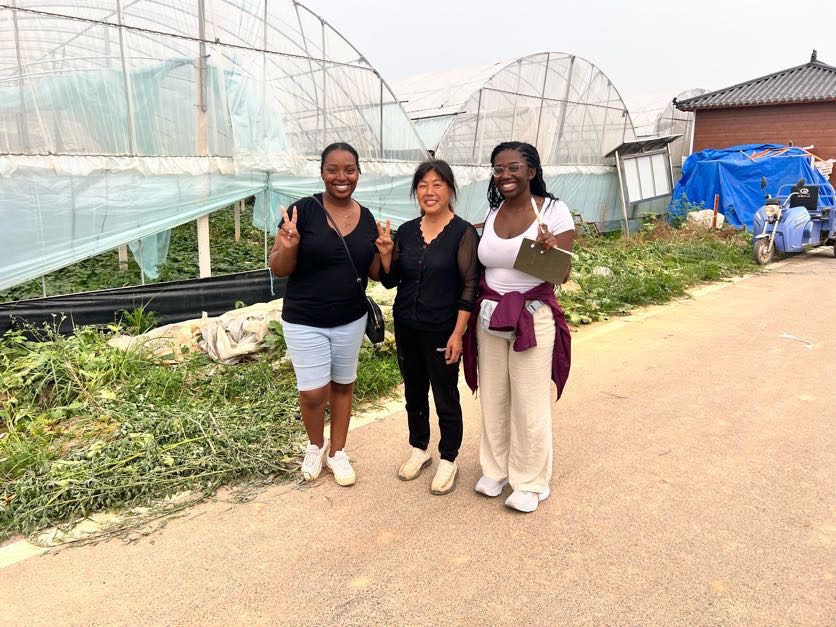
On June 6th, the agriculture education group arrived in the city of Jinan to participate in the Trade and Business Dialogue, hosted by the Shandong Provincial government. This three-day event aimed to bolster the commitment made between the leaders of the two largest economies in the world to address pressing global challenges such as food security and sustainable agricultural practices.
The Opening Ceremony on June 7th gave the student delegates a glimpse into the professional world of global agribusiness, hearing from high-level speakers, as well as attending a Signing and Launching Ceremony, two specialized panels, a Business Matching event, and an Exhibition showcasing distinctive agricultural products from Shandong and the U.S.
The Ag Education Delegation received special attention on the day of the Opening Ceremony, as the Chinese hosts made every effort to welcome the American students. Several students were invited to come on stage for the signing of the “Launching of China (Shandong)-U.S. ‘New Farmers’ Exchange Program,” formalizing an agreement between American universities and Shandong agricultural academies to pursue deeper educational and research connections going forward. This program is inspired by President’s Xi’s call for more people-to-people exchanges and an invitation for 50,000 American youth to visit China in the next 5 years.
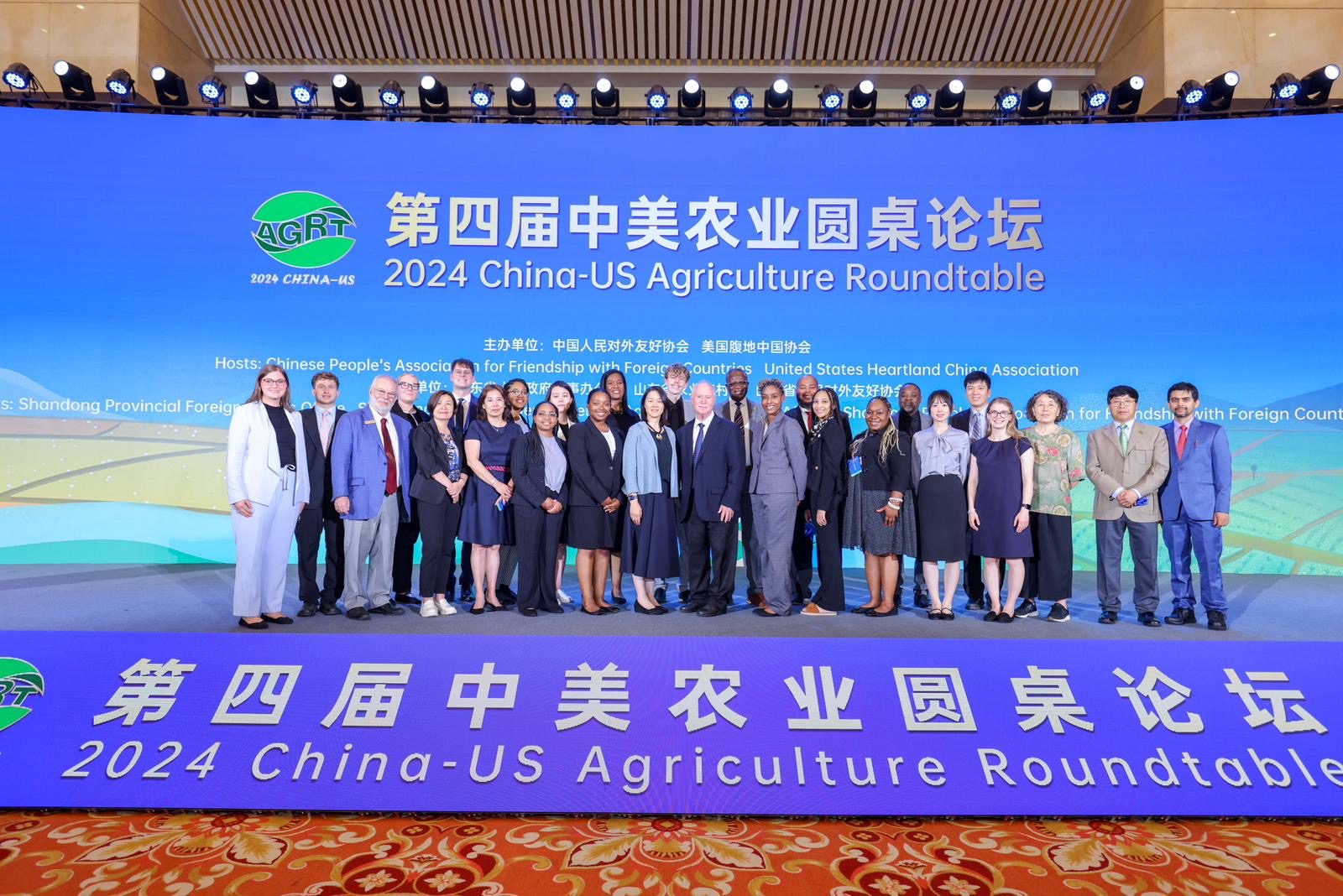
Ag Education student and faculty delegates also visited the Shandong Academy of Agricultural Sciences to meet with fellow ag students and professors, and to explore future educational exchange opportunities.
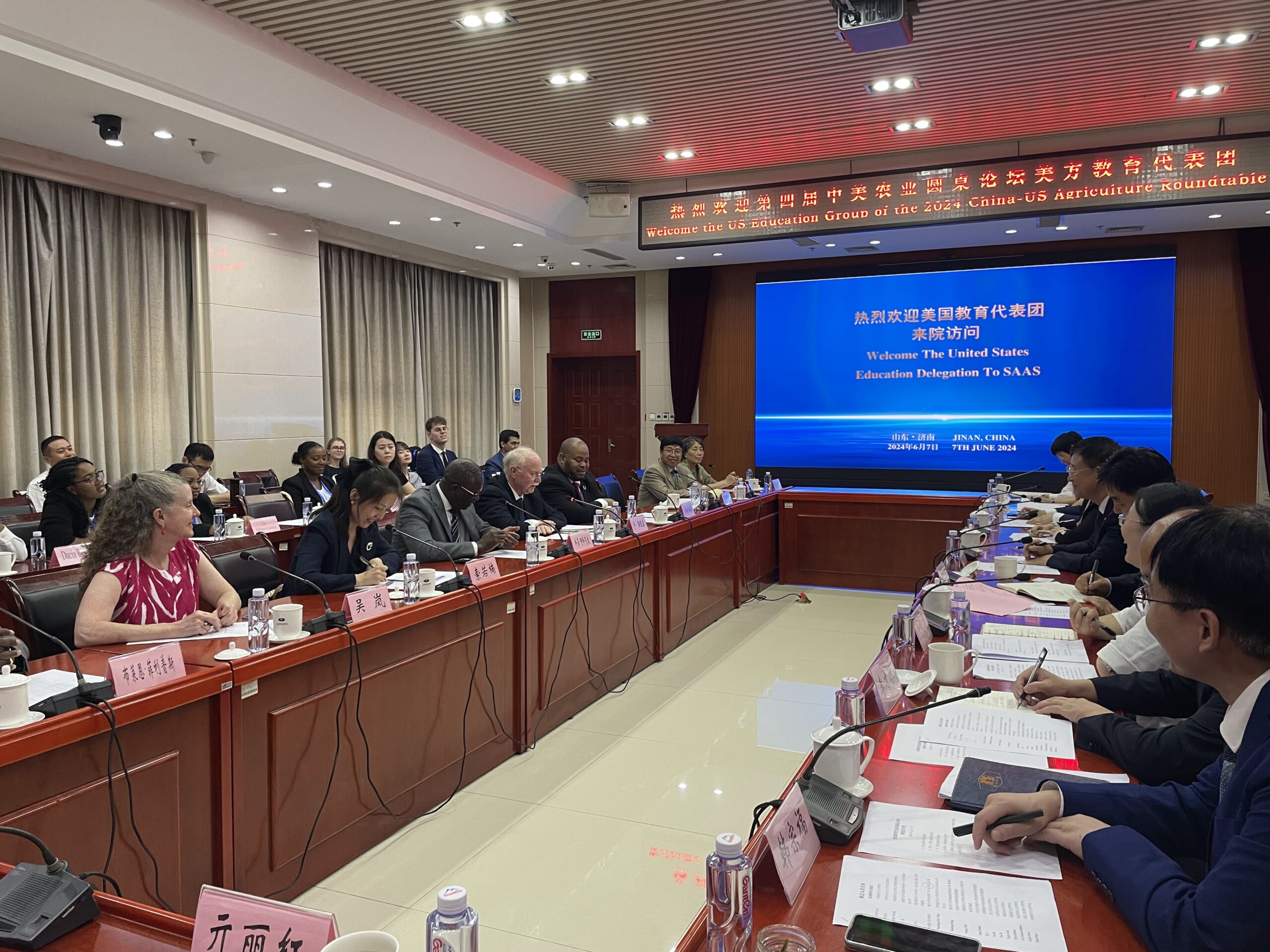
For the following two days, American delegates received a private tour of the incredible agricultural technology and specialization to be found in Shandong Province, traveling to the cities of Binzhou and Weifang. From June 8th-9th, delegates went on field visits to local agricultural enterprises where they observed cutting-edge practices in smart and sustainable agriculture. These visits not only facilitated interactive real-time sharing and learning between the delegates and the Chinese experts but also highlighted successful applications of innovative agricultural technologies.
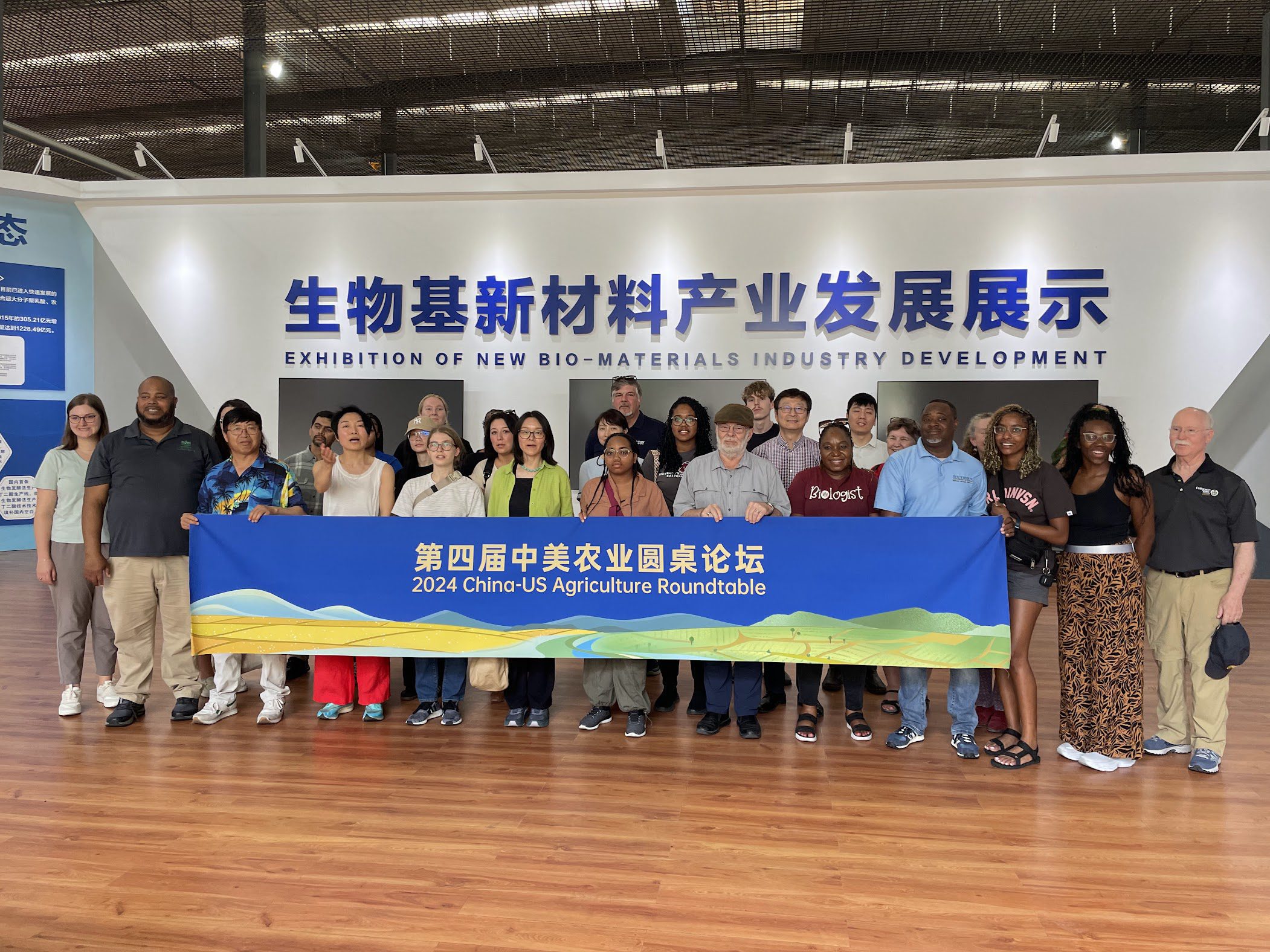
On June 9th, the ag education group departed for Beijing. After a rest day full of cultural activities, including climbing the Great Wall, the learning trip continued on June 11th with the Agriculture Education Dialogue taking place at the world-renowned China Agriculture University.
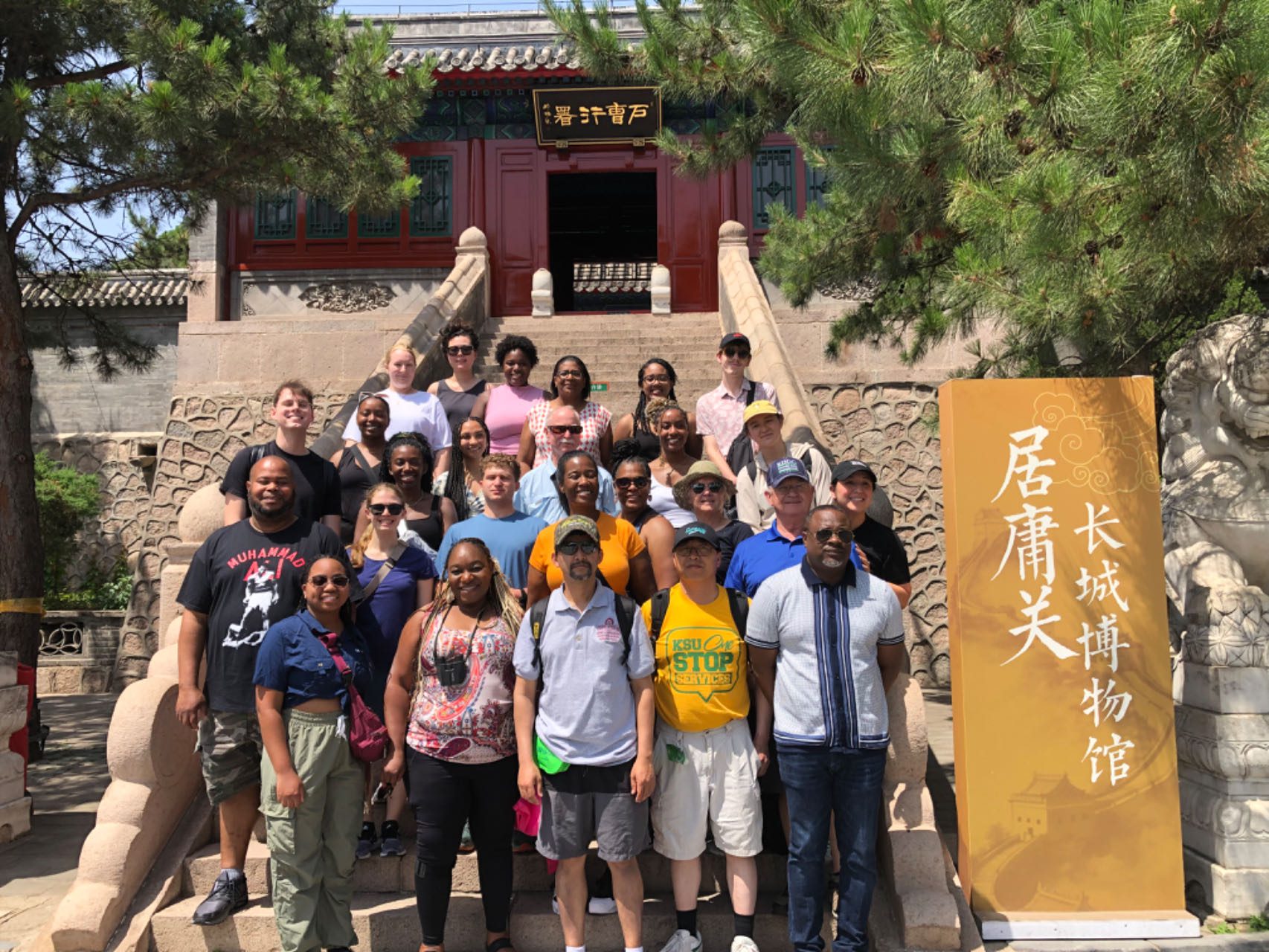
This closed conference focused on enhancing educational cooperation between the United States and China in order to elevate agricultural practices and training. Students and educators from CAU joined delegates from American Universities across the country to discuss the role of higher education institutions in supporting agricultural innovation and rural development.
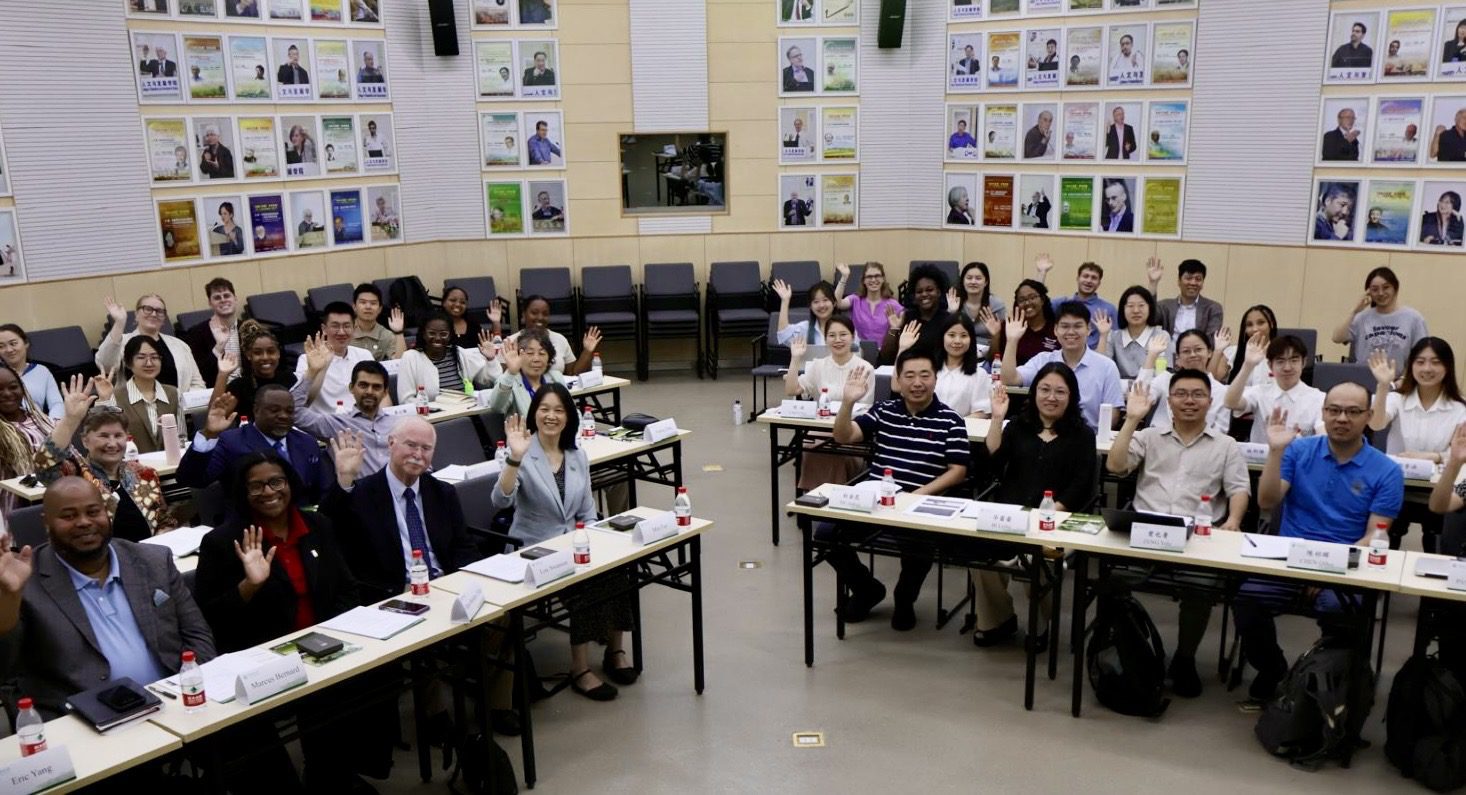
In the afternoon, the delegation member had the incredible opportunity to visit with one of China’s most prominent agribusinesses, China Oil Foodstuffs Corporation (COFCO) and joined a meeting with the COFCO leadership. The meeting addresses COFCO’s role in facilitating international agricultural trading and China’s agricultural development, as well as the history of COFCO and its development strategies in recent years.
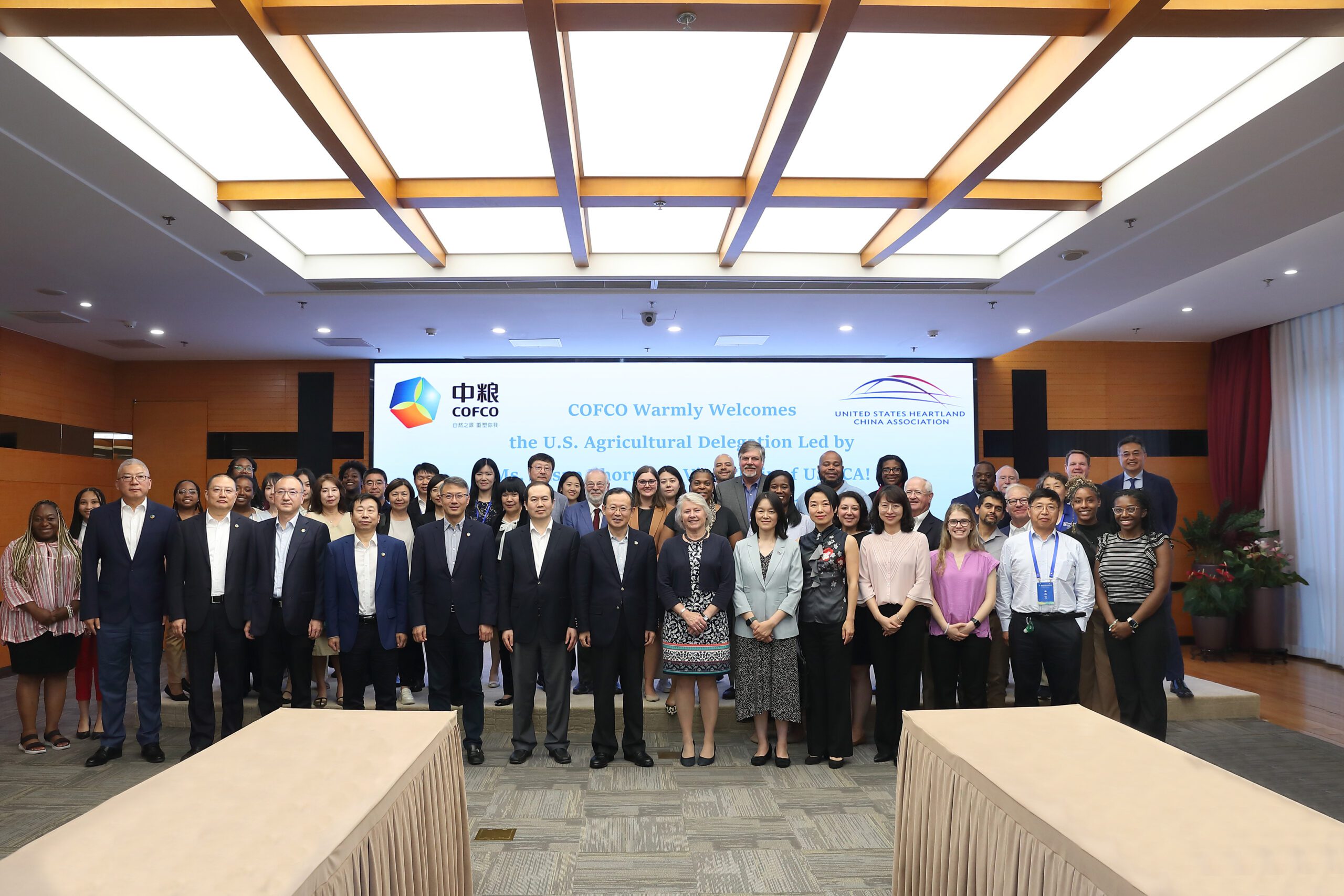
On June 12th, the Think Tank Dialogue was held in Beijing at the Chinese Academy of Social Sciences (CASS). An assemblage of 30 experts addressed an audience of over 100 agricultural scientists and practitioners to discuss opportunities for the U.S. and China to work together as we jointly face the immense challenges of climate change, food security, and agricultural development. This full-day session underscored the pivotal role of the U.S.-China cooperation in stabilizing the global food supply chain amid rising geopolitical tensions and environmental challenges.
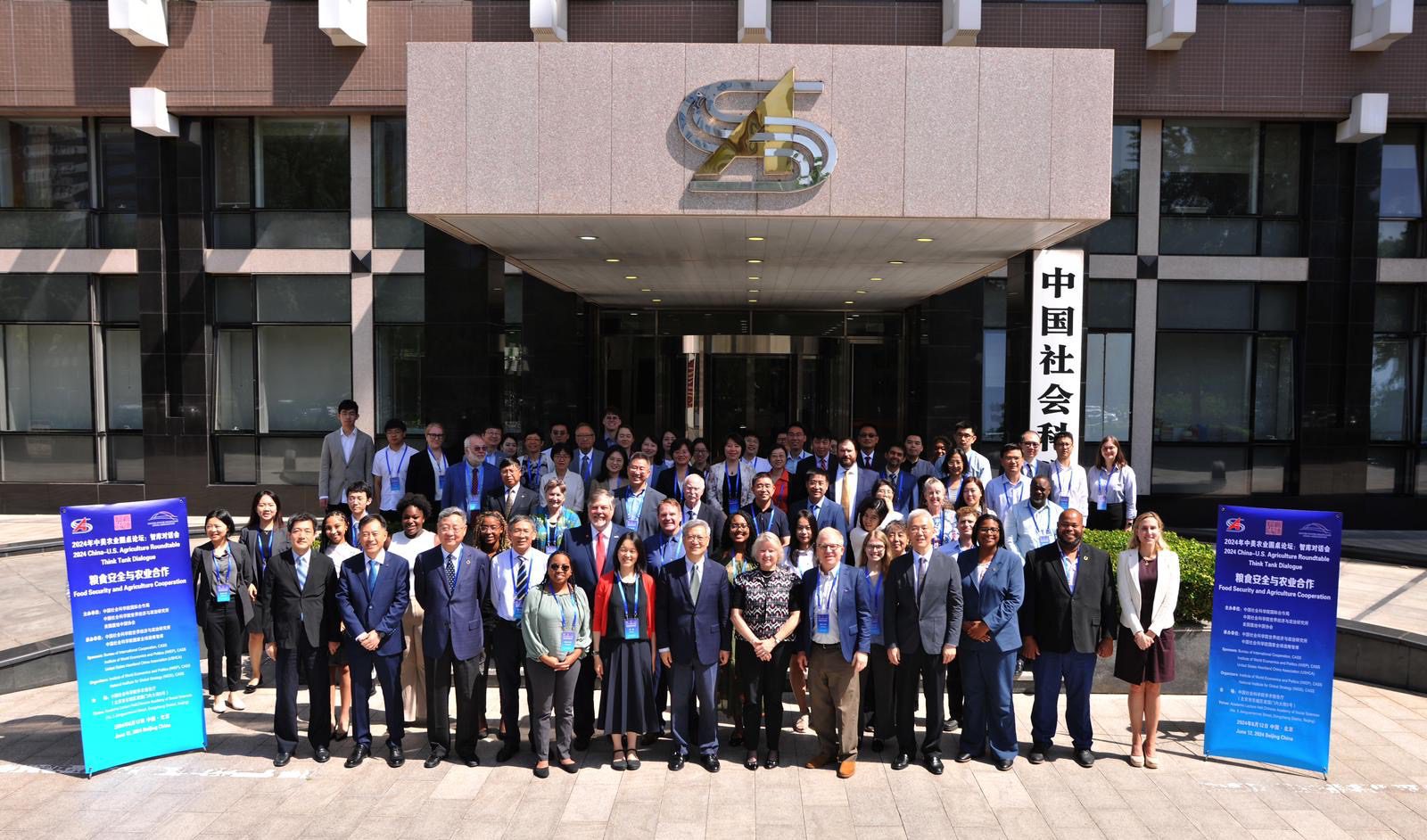
On June 13th, the group took a bullet train across the country to Xi’an, Shaanxi province for the final leg of their journey. On the 14th, students and faculty delegates were welcomed by the Northwest Agriculture & Forestry University to learn about the institution’s history and tour their extensive campuses. Delegates were guided through the university’s state-of-the-art Entomology Museum and sprawling botanical gardens, all while learning about the extensive legacy of Chinese agricultural civilization and its traditional agrarian wisdom.
The group then visited Yangling Technology Center and the Syngenta Group China Innovation Center in Yangling to learn more about plant breeding, genetic modification, plant pathology, agronomy, soil science, and other agricultural scientific studies.
That afternoon, delegation members traveled to the rural county of Mei Xian, to see a local kiwifruit museum, and stopped at a local kiwifruit wine company before enjoying a kiwifruit farm, learning about how this specialized agricultural product fit into the integrated whole industry chain to boost local rural economy.
On June 15th, delegates spent their last day in Xi’an exploring the beautiful and historic city, walking along the fortification of one of the oldest, largest, and best preserved Chinese city walls, as well as making an excursion to see the famous Terracotta Soldiers.
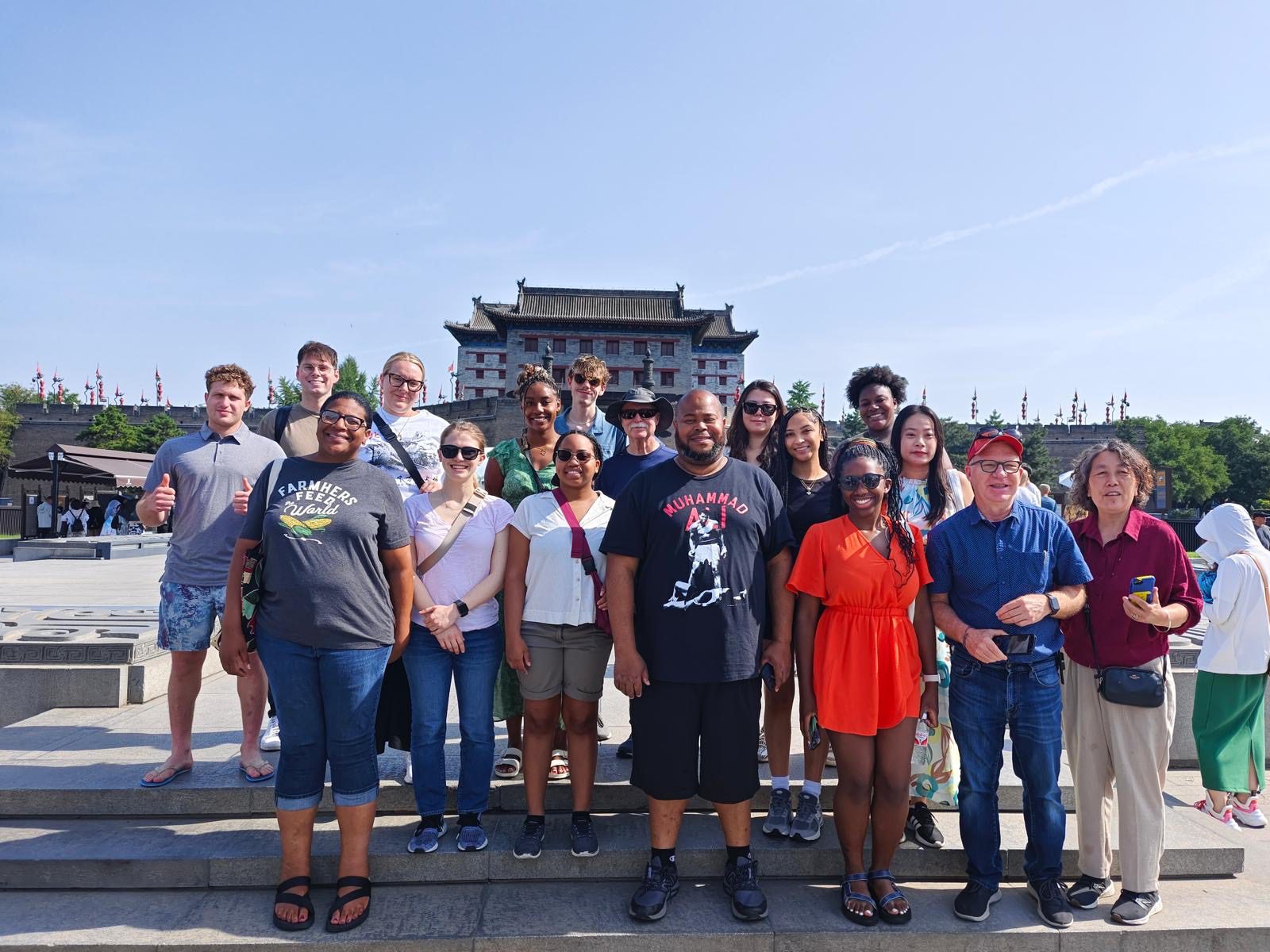
The trip concluded in Shanghai, where the students, faculty, academic advisors, USHCA team members, and support staff spent the final evening of the delegation taking a walk along the famous Bund waterfront, before returning home on June 16th. USHCA is immensely proud to have hosted such an incredible group of globally-minded agricultural university faculty members, future agribusiness leaders and young agricultural professionals, and to have helped guide their experience in China.
“The collaboration between universities and extension services in China serves as a model for strengthening the link between research and practical application. Increasing collaboration between U.S. universities and extension services could enhance the relevance and impact of agricultural research…
“The insights gained from this trip have the potential to inform and improve agricultural practices and extension education in both countries. By learning from each other, both nations can enhance their agricultural productivity and sustainability, ultimately contributing to global food security and rural development.”
– Jonathan Franklin of University of Maryland Eastern Shore
“Visiting and experiencing Chinese agriculture and culture was a once in a lifetime experience that I will be forever grateful for. I would have never thought that I would get the opportunity to go around the impressive country, collaborating with other students and universities, meeting government officials and business owners, and overall become more worldly and cultured in a country so deep with roots. This trip has expanded my range and opened my eyes to a plethora of new opportunities that I did not know about before…
“I have learned so much on this trip. Summed up, China is a beautiful, complex country rich with history and development. The people are kind and curious, the technology is advanced, and the education is top-notch.”
– Zuri Hobson-Gladney of Delaware State University
